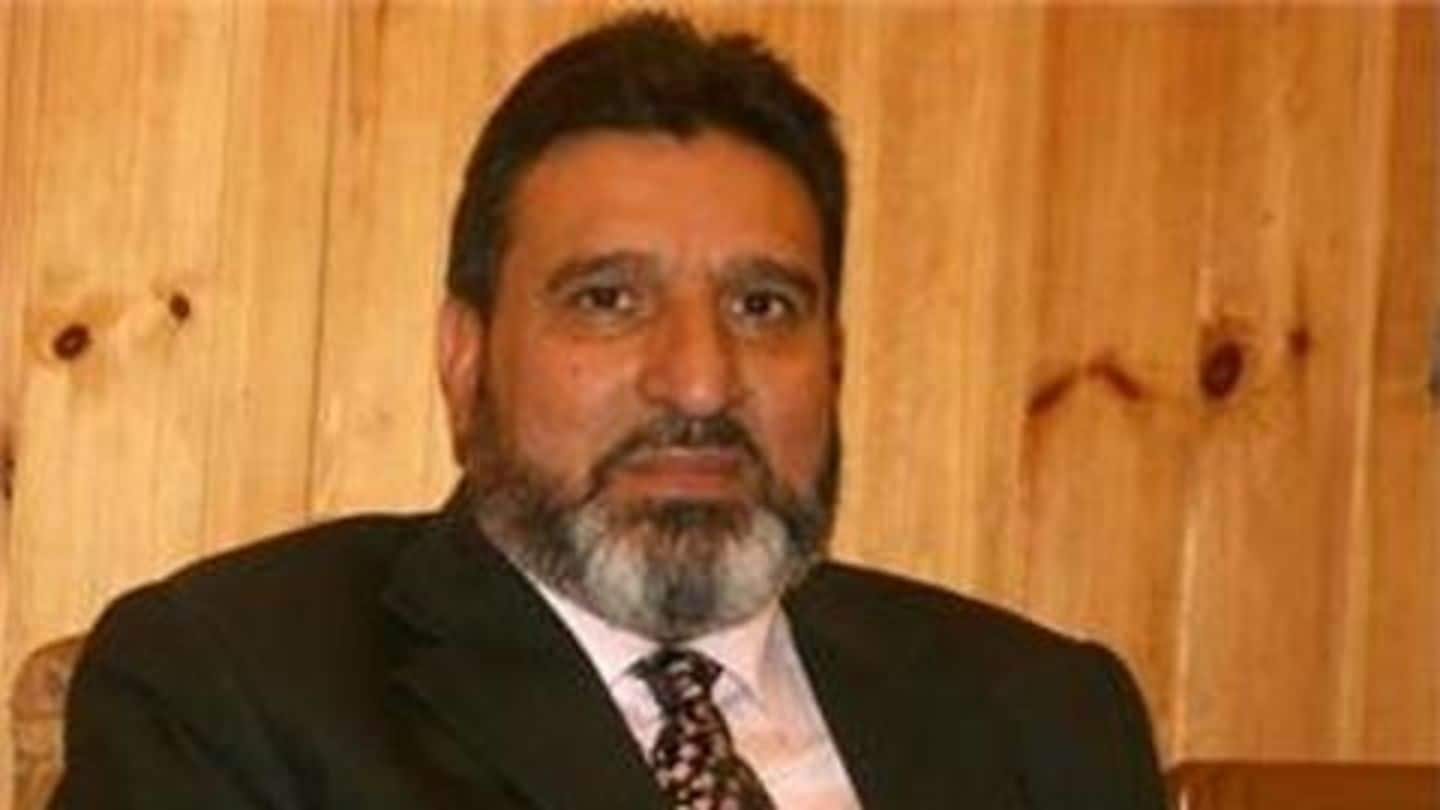
'Hollow, unacceptable,' J&K politicians slam new domicile rule
What's the story
The Centre has redefined the domicile laws in Jammu and Kashmir. Under the new regulations, a person who has resided in the Union Territory for over 15 years can be a domicile.
Earlier, only people considered permanent residents were eligible to apply for jobs or own immovable property in the erstwhile state.
The new rule has drawn criticism from J&K politicians.
Domicile law
What does the new domicile rule say?
As per a gazette notification, Section 3A of the J&K Reorganisation (Adaptation of State Laws) Order 2020, under the J&K civil services (decentralization and recruitment) Act, a domicile has been defined as someone who has resided in J&K for over 15 years.
The definition also includes persons who studied in J&K for over seven years and appeared in X/XII examinations in a J&K school.
Other details
'Domicile' also includes children of government officials, service officers, etc.
Further, the definition also covers "children of those central government officials, all India services officers, officials of PSUs and autonomous body of the central government, public sector banks, officials of statutory bodies, officials of central universities and recognized research institutes of the central government who have served in Jammu and Kashmir for a total period of ten years..."
Information
J&K residents' children who reside elsewhere also included
A person will also be considered to be domiciled in J&K if they are the children of residents and reside elsewhere for "employment, business or other professional or vocational reasons." The parents notably must fulfill the eligibility criteria for them to be domiciled.
Criticism
An attempt to hoodwink people of J&K: JKAP President
Jammu and Kashmir Apni Party (JKAP) President Altaf Bukhari has slammed the order.
He defined it as a "casual attempt, cosmetic in nature, to hoodwink the people of J&K." He said the order was "carried out at bureaucratic level without taking aspirations and expectations of people into consideration."
He demanded the order be put in abeyance till the coronavirus outbreak subsides.
Issues
Bukhari also detailed issues with the order
Bukhari said that a "tangible, legal and constitutional" mechanism was to be introduced to protect the interests of permanent J&K residents with respect to non-Gazetted and Gazetted posts in the service and admissions to professional colleges, IANS reported.
He said the inclusion of children of government officials and others "diluted the purpose of privileges enjoyed by J&K residents prior to October 31, 2019."
Issues
Bukhari also raised issues concerning government jobs
Bukhari said the section of the order pertaining to The Jammu and Kashmir Civil Services (Decentralization and Recruitment) Act which provides protection of jobs for J&K residents up to Rs. 25,500 payscale left other levels of government jobs free for all.
This, he said, was an "antithesis to what was promised by the Prime Minister and Home Minister on the floor of Parliament."
Information
'Totally contradictory; provides tunnel for non-residents'
He also said that the inclusion of those who appeared for Class X/XII examinations in J&K is "totally contradictory and provides a tunnel for non-residents." Underlining vague sections in the order, Bukhari demanded threadbare discussions with all J&K stakeholders at an appropriate time.
J&K Peoples Conference
Humiliating and insulting: J&K Peoples Conference
The J&K Peoples Conference also felt that the new definition of domicile was humiliating and insulting.
It said, "The government of the day has embarked on an erroneous path and seems to be in no mood to rectify wrongs and instead is content to be deluded in the world of 'we know the best' for J&K and its people."
Omar Abdullah
Insult is heaped on injury: Omar Abdullah
Former J&K Chief Minister Omar Abdullah—who was recently released from detention after eight months—said the timing of such an order was suspicious considering the coronavirus outbreak.
He said, "Insult is heaped on injury when we see the law offers none of the protections that had been promised."
He said the hollowness of the order is evidenced in how even the JKAP has criticized it.
Twitter Post
You can view Abdullah's tweet here
You can imagine how hollow the domicile law is from the fact that even the new party created with Delhi’s blessings, whose leaders were lobbying in Delhi for this law, have been forced to criticise the #JKdomicilelaw
— Omar Abdullah (@OmarAbdullah) April 1, 2020